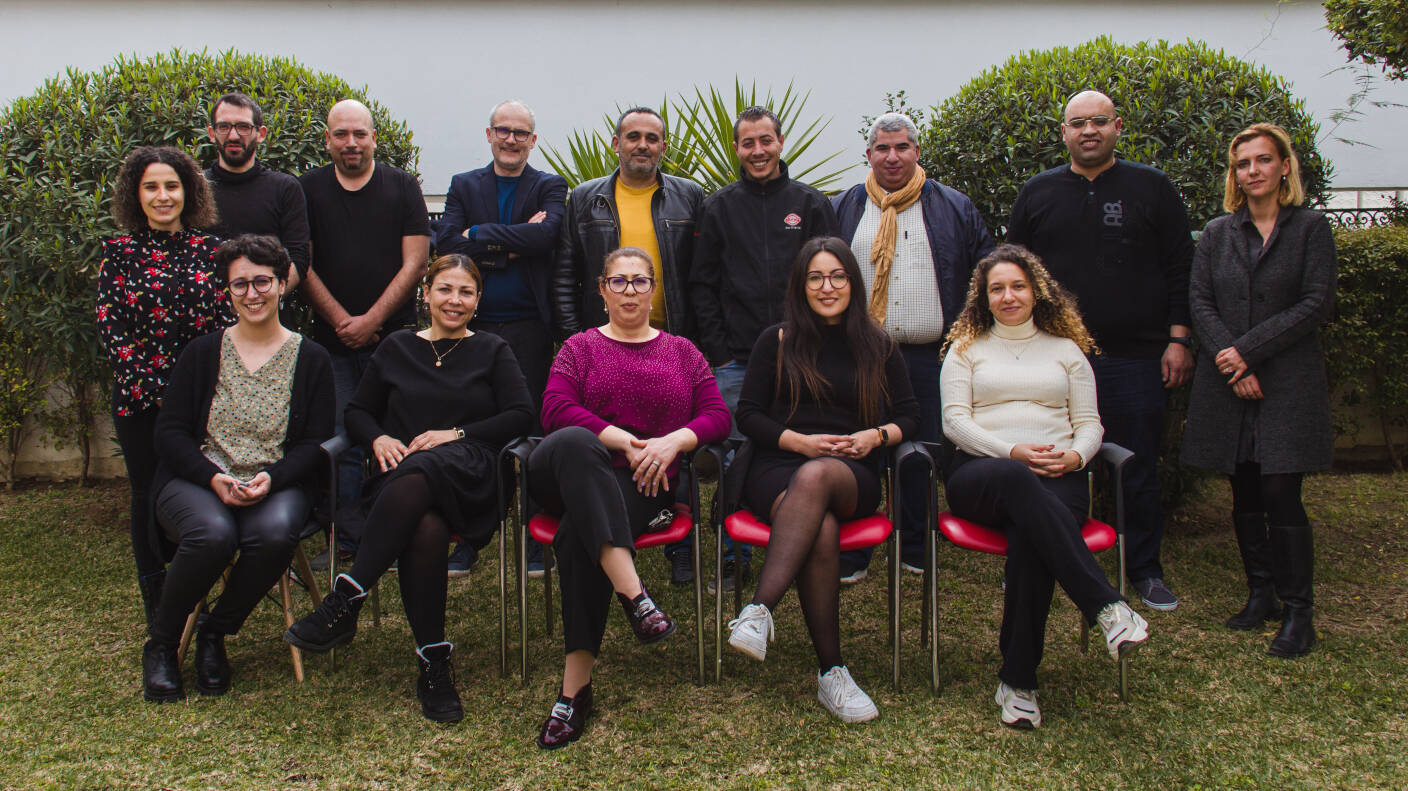North Africa Regional Office
Our regional office in Tunis coordinates the Rosa Luxemburg Foundation’s projects and partner activities in Tunisia, Egypt, and Morocco
North Africa is undergoing rapid, radical change. The 2011 protests forced political actors who previously worked in a highly repressive environment to stand their ground in the open. New political initiatives emerged across the region, making use of their newly won liberties.
Nevertheless, these groups and movements are finding it tremendously difficult to map the political terrain in these systems, which are either caught up in the fragile process of consolidation or already resorting to bloody repression in order to maintain power. The situation is made all the worse by the fact that the region faces enormous political challenges: long-term unemployment and impoverishment, education sectors in need of reform, and a lack of autonomy in terms of economic development aggravated by ongoing foreign debt.
Following a brief period of democracy, many governments now find themselves needing to secure their short-term access to financial resources, which is why they have begun to once again embrace the elites of the old dictatorships whose power and influence remain almost fully intact. As a result, we are now seeing a repeat of the very conditions that triggered the protests back in 2011. Given the lack of prospects, especially among the younger population, migration to Europe (and the urge to migrate in general) is widespread.
With the exception of Morocco, state actors in the region are failing to address these issues. This is also true in relation to the fate of migrants in transit from southern countries who are either treated as cheap labour or accused of posing a national security threat.
Activities
The office’s regional work focuses on four main themes:
- Developing Socio-Economic Alternatives
The situation in Tunisia mirrors many of the socio-economic challenges facing North Africa more generally. The 2010–11 uprisings were primarily triggered by stark regional disparities and high unemployment. A large part of the public budget is used to repay foreign debt, leaving health care, education, and regional development underfunded.
Discussions exploring alternatives to neoliberalism remained stuck in the early stages and restricted to a small milieu of experts. Moreover, economic expertise is weak across the Left in general. The Rosa Luxemburg Foundation therefore focuses on addressing the impacts of European–North African economic relations and critically commenting on planned free trade agreements. - Migration
Living conditions in North African countries compel many to migrate. At the same time, these countries serve as the last port of call for many refugees and migrants from other regions before embarking on their irregular and dangerous journeys across the Mediterranean to Europe. For people in transit in North Africa, the situation is dire. They are often subjected to racism and repression by state authorities tasked with securing borders on behalf of the European Union. - Supporting a Fragmented Left
Many of the North African countries once featured influential left-wing parties. Although these movements have shrunk and grown increasingly fragmented today, they remain present. This Left, however, is far from being able to develop programmatic alternatives to neoliberal systems at the moment, nor is it capable of acting as a hub for modern forms of organization.
In some of the region’s countries, these challenges are exacerbated by mounting repression. Elsewhere, such as in Tunisia, the Left is adapting to its newfound voice in parliament after spending decades underground. - Decentralization and Rural Areas
The vast majority of economic and political activity in North Africa is concentrated in the large urban centres. In many respects, rural areas are significantly less well-off and more isolated — both economically, but also in terms of education and access to infrastructure. This geographic distance is amplified by ossified, centralistic administrative structures and processes, all of which alienate rural citizens from the populations of large cities.

Tunis Regional Office
Director: Armin Osmanovic
Rosa-Luxemburg-Stiftung North Africa Office
55TER, Rue 1er Juin
1082 Mutuelleville - Tunis
Tunisie